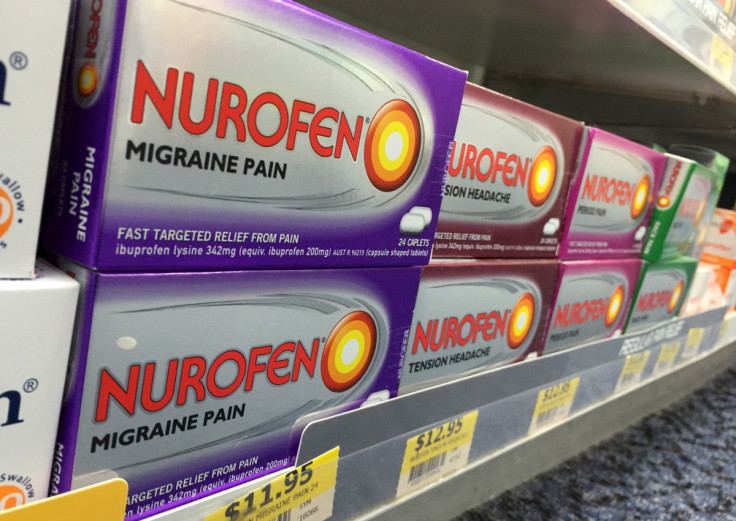Nurofen price scandal: Reckitt Benckiser caught selling identical pills for different cures

A court in Australia has ordered on Monday (14 December) drug giant Reckitt Benckiser to withdraw some of its painkillers after the company admitted it sold identical products for different types of pain for almost double the price of its standard painkiller.
The Australian federal court ruled that the company had misled consumers after it was discovered that Nurofen Back Pain, Nurofen Period Pain, Nurofen Migraine Pain and Nurofen Tension Headache are all the same pill, all containing the same active ingredient, ibuprofen lysine 342mg.
Reckitt Benckiser said the case only related to Australia and would not be applicable in other countries, including the UK.
In the UK, according to the Boots website, Nurofen is £2 for a packet of 16 200mg packets, compared to £2.85 for a packet of Nurofen Tension Headache and Nurofen Migraine Pain.
In a statement, chairman of the Australian Competition and Consumer Commission (ACCC) Rod Simms said the proceedings were taken because it was concerned that consumers may have purchased these products in the belief that they specifically treated a certain type of pain, based on the representations on the packaging.
"Truth in advertising and consumer issues in the health and medical sectors are priority areas for the ACCC, to ensure that consumers are given accurate information when making their purchasing decisions," it said.
Reckitt Benckiser has been ordered to remove the Nurofen Specific Pain products from retail shelves within three months.
The court has also ordered that Reckitt Benckiser publish website and newspaper corrective notices, implement a consumer-protection compliance programme, and pay the ACCC's costs, although there will be a separate hearing to decide whether the company will also be fined.
Spokeswoman for the Royal Pharmaceutical Society, Melissa Dear told the IBTimes UK that if the strength of the tablets was the same then the effectiveness of the products would be the same.
"If you have two tablets and they both contain the same amount of active ingredient and they are both in the same form, then the effectiveness of the product is the same.
"If one was a tablet and one was a liquid, there may be differences in how they are absorbed."
In a statement to the Press Association, Nurofen spokeswoman Montse Pena said that the range was launched with the aim of helping consumers decide which painkiller to choose in the absence of any professional medical healthcare advice.
"Nurofen did not set out to mislead consumers. Nurofen has co-operated with the ACCC in relation to these proceedings and will fully comply with the court order made today," she said.
Connor Campbell, senior market analyst at spreadex.com told IBTimes UK in a statement that the controversy had had little impact on Reckitt Benckiser.
"Though it has the makings of a scandal, news that Nurofen has been ordered off the shelves in Australia after the courts took umbrage with the fact the brand's 'specific pain' range were all identical failed to make much of an impact on the pharmaceutical sector.
"In fact, against the grain of the FTSE, Nurofen maker Reckitt Benckiser has actually climbed this Monday by nearly half a percent," he said.
© Copyright IBTimes 2024. All rights reserved.






